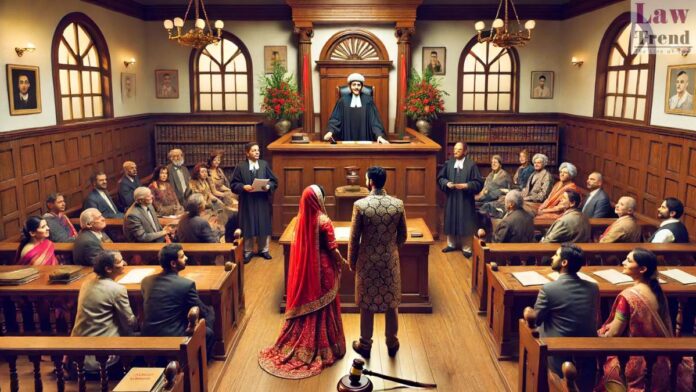The Supreme Court has dissolved a marriage under Article 142 of the Constitution, citing irretrievable breakdown and a 16-year-long separation between the spouses. The Court held that forcing a dead marriage to continue serves no beneficial purpose and only perpetuates mental agony and societal burden. Background The marriage between the appellant and the respondent was
To Read More Please Subscribe to VIP Membership for Unlimited Access to All the Articles, Download Available Copies of Judgments/Order, Acess to Central/State Bare Acts, Advertisement Free Content, Access to More than 4000 Legal Drafts( Readymade Editable Formats of Suits, Petitions, Writs, Legal Notices, Divorce Petitions, 138 Notices, Bail Applications etc.) in Hindi and English.




